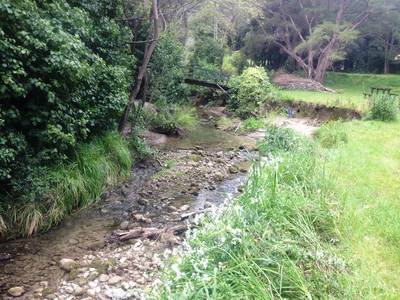 Gisborne's goal is to deliver schools and their communities practical, holistic and inspiring information and education about local freshwater environments and to promote positive changes in attitudes and behaviour towards them. Their ultimate goal is to encourage and inspire schools and community groups to become kaitiakitanga/guardians of our local streams to restore, maintain or improve these sites.
Gisborne's goal is to deliver schools and their communities practical, holistic and inspiring information and education about local freshwater environments and to promote positive changes in attitudes and behaviour towards them. Their ultimate goal is to encourage and inspire schools and community groups to become kaitiakitanga/guardians of our local streams to restore, maintain or improve these sites.
Coordinators:
Amy Hardy (Regional WBC Manager)
Phone: 027 713 9152
Email: This email address is being protected from spambots. You need JavaScript enabled to view it.
Website: www.nmtt.co.nz
Hana Hardy (Programme Coordinator)
Phone: 022 459 7305
Email: This email address is being protected from spambots. You need JavaScript enabled to view it.
Website: www.nmtt.co.nz
Murray Palmer (Ambassador)
Murray and Amy have coordinated & delivered the WBC programme to many local schools including; Gisborne Central School, Wainui School, Mangapapa School, Manutuke School, Te Wharau School, TKKM o Nga Uri a Maui, TKKM o Mangatuna, Lytton High School, Stand for Children’s Services, Gisborne Girls High School and many more within the region.
Some feedback from students and teachers below:
Alice Houkamau, Gisborne Girls High School: “Some positive aspects of this programme that we encountered were students working co-operatively and sharing ideas to achieve their goal in their group e.g. identifying the most abundant species they have collected from the awa. Students were learning hands-on biology and applying it to their NCEA Level 2 internal standard which has given us a new programme for future students to follow”.
Ben Tamatea, Stand for Children’s Services: “Presentation of the programme delivered was excellent. Every student involved loved the presenters and felt comfortable around them which is a major barrier for our kids learning but they soaked up every bit of information and gained a lot of new skills and knowledge for our freshwater monitoring mahi”
Michelle Barker, Awapuni School: “Lessons were student centred and interactive. They were informative and linked to our ongoing class inquiry ‘Kaitiakitanga’. Whanau also enjoyed being part of the day and learnt many things also. We love the passion that Amy has which is then passed on to the tamariki, the ability to foster what the tamariki were thinking/sharing made it very interactive mahi for the kids”
Awapuni School Students:
“I’m going to ask my nan to buy me some containers and nets so I can try and catch these animals at a stream by my house and see if it’s healthy. We swim in it all the time so I hope it is.”
“My favourite part was the clarity tube when we saw it go from 100cm at Waihirere to 10cm at Waikanae which shows how polluted our town stream is and all the dirt in it. We are fencing and planting this area to try and improve it”
“I really enjoyed looking through the microscope and seeing the tiny animals crawling out of their shell. It didn’t even look like anything until we saw it moving under the microscope.”
Highlights
- The development and delivery of two new NCEA achievement standards (Biology 2.1 and 2.3) integrated into Gisborne Girls High School curriculum so students can participate in these programmes while achieving their NCEA achievement standards. This is an ongoing monitoring programme which will be completed every year in Term 1 with new year 12 students.
- A collaboration and strong partnership with Enviro Schools and Women’s Native Tree Project Trust where students are gaining a wider programme by participating in a range of different courses including water monitoring and fish species identification, fencing, and native planting and restoration of the site while gaining NCEA credits through all organisations.
- The development of a curriculum resource for teachers wanting to participate in the full WBC programme. This resource is focused on the inanga species and covers level 3 and 4 teaching and learning objectives for all science components, social science and personal health and physical education. We worked with Gisborne District Council to deliver and monitor the success of this resource and the restoration components that were a result of this was fantastic. This resource was also translated into Te Reo and therefore, can be implemented into Kura Kaupapa which was trialled on TKKM o Nga Uri a Maui.
- Extensive ongoing water monitoring programmes focused on gaining consistent and appropriate data of specific freshwater sites to engage and advocate to the wider community and support/implement restoration decisions for the ongoing future. Te Kura o Hiruharama Primary School, TKKM o Whatatutu School, Makarika School and Motu School are some schools that have participated in a more extensive programme where we have conducted a number of site visits and recorded data over a number of months or years. Some of these schools have used biological indicators to assess stream health that has close links with Tangata Whenua indicators (fish, birds, invertebrates) and undertaken wider catchment mapping and evaluation.
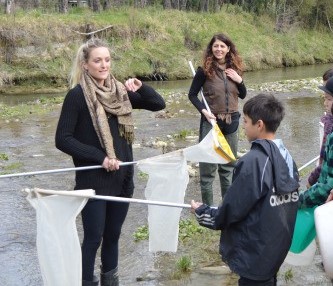
WBC Gisborne Regional Coordinator, Amy Hardy, briefing students by the river before they sample for invertebrates.

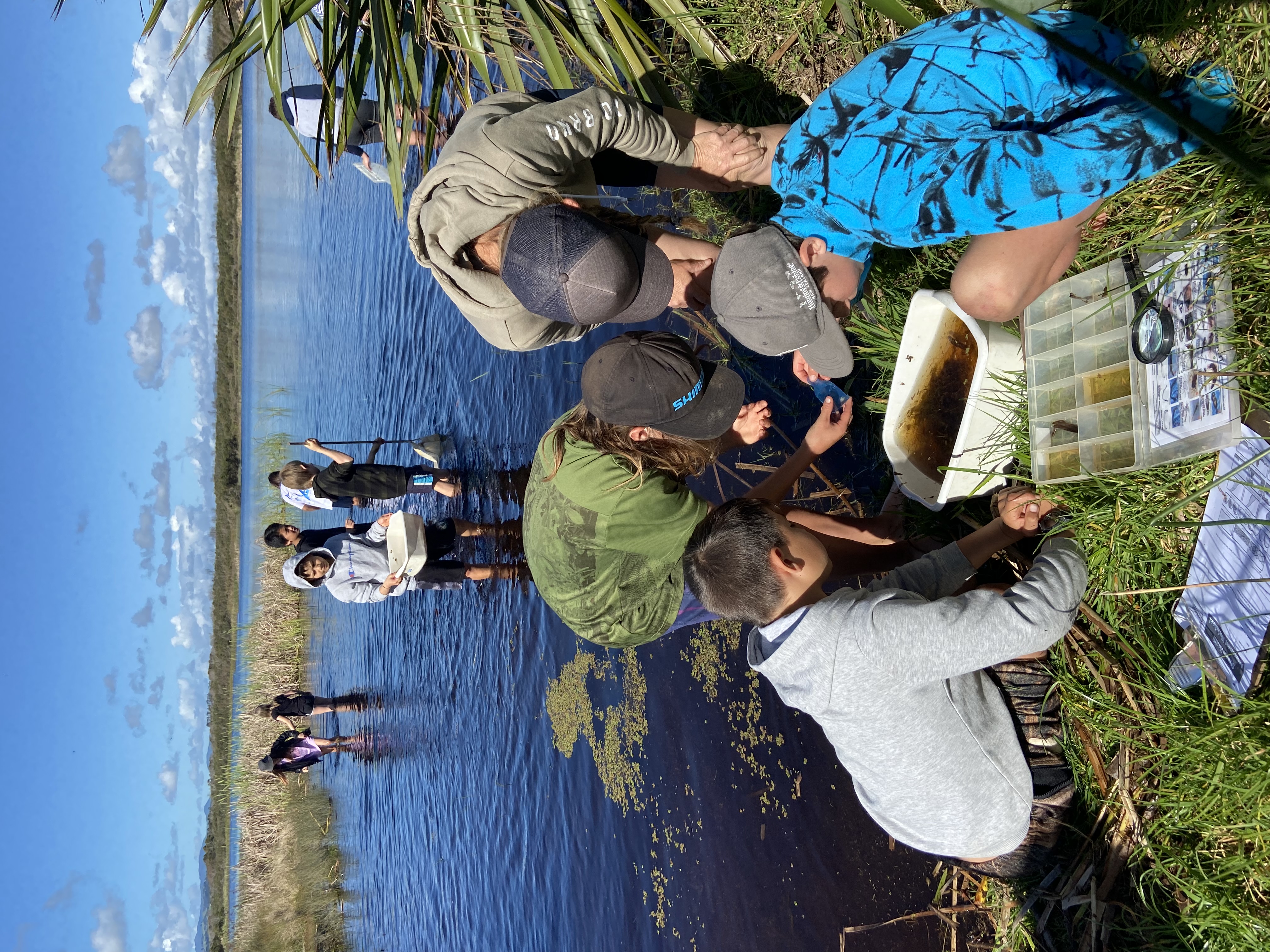
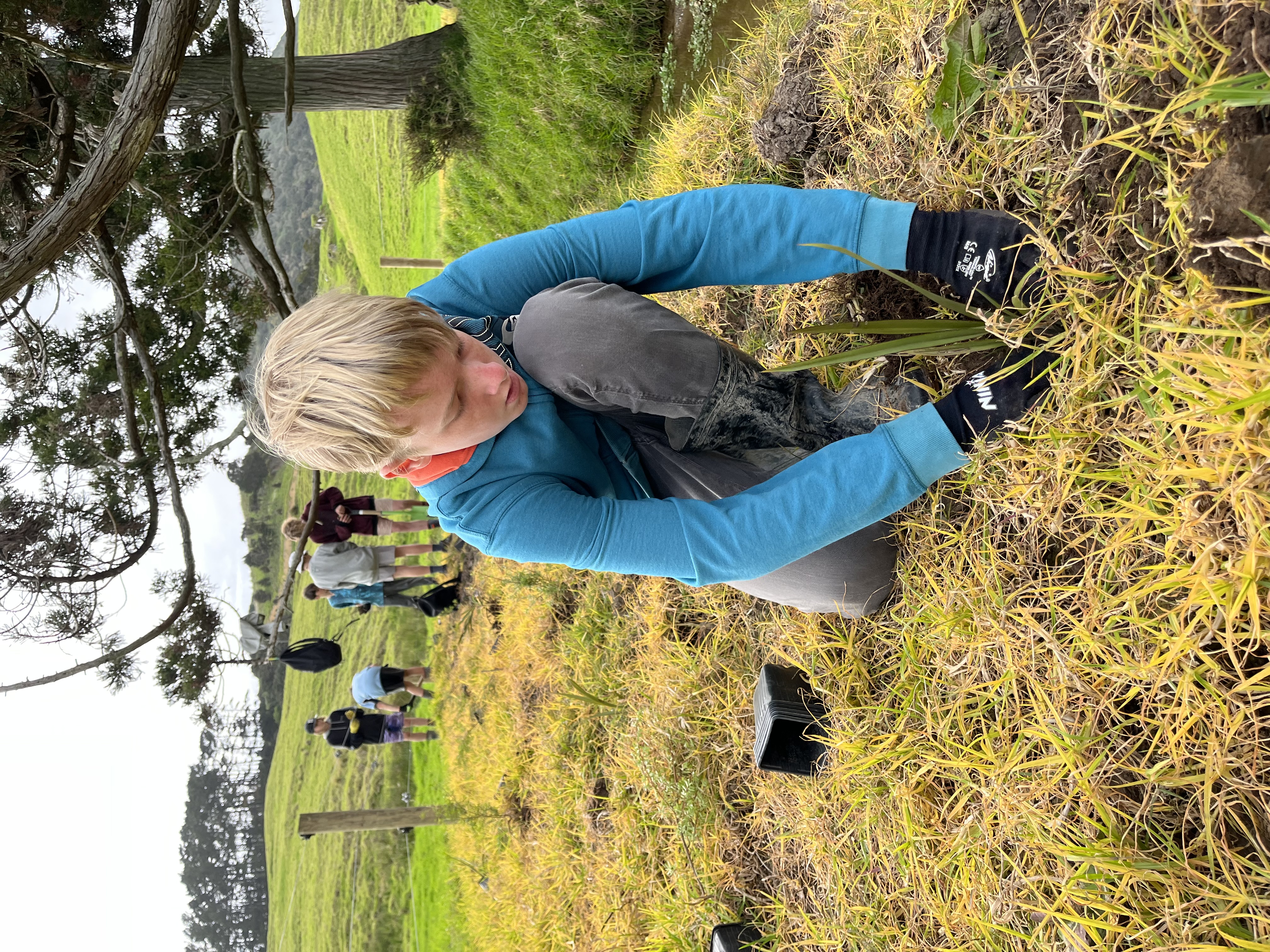 Whangarei area!
Whangarei area! 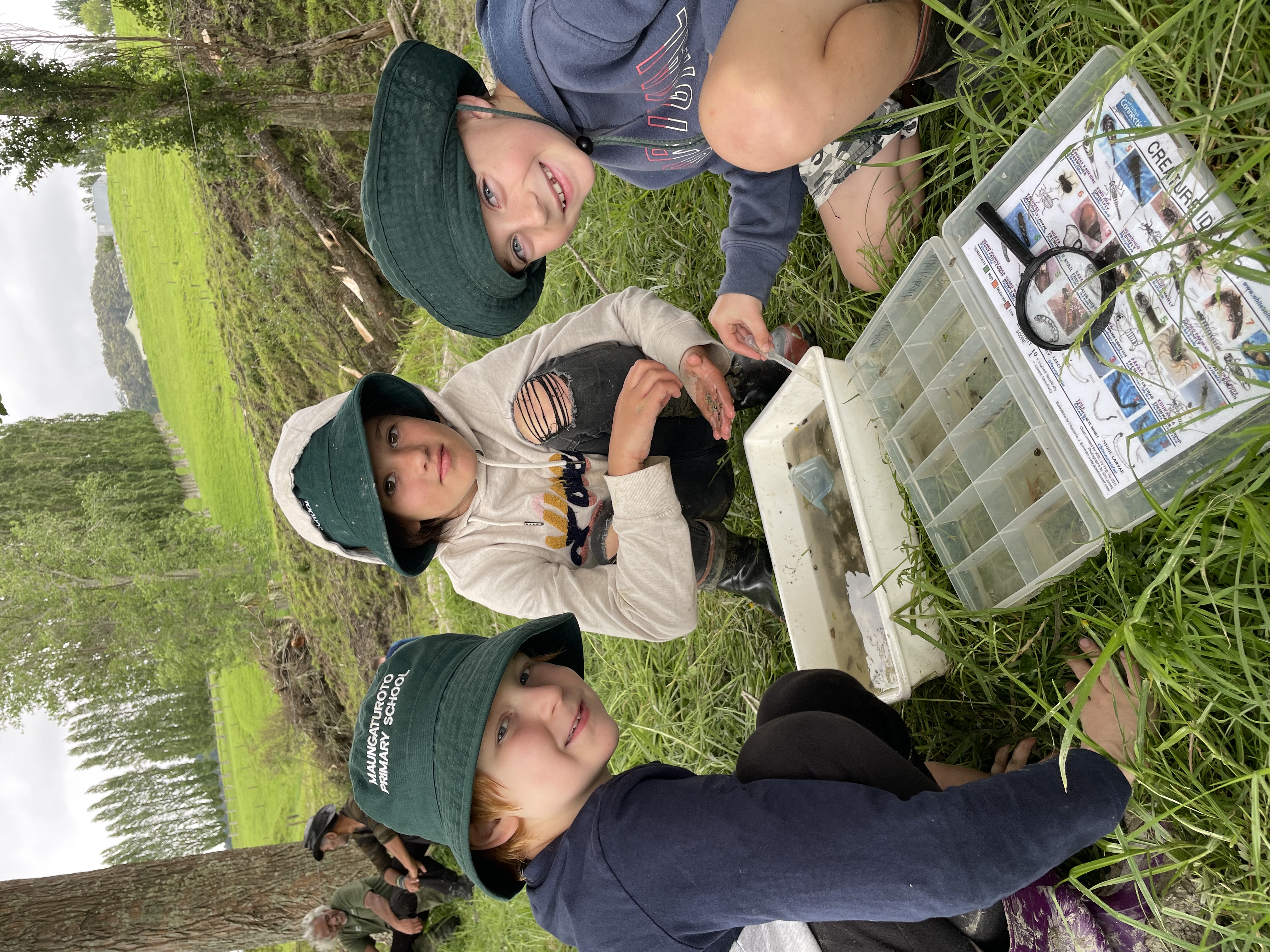
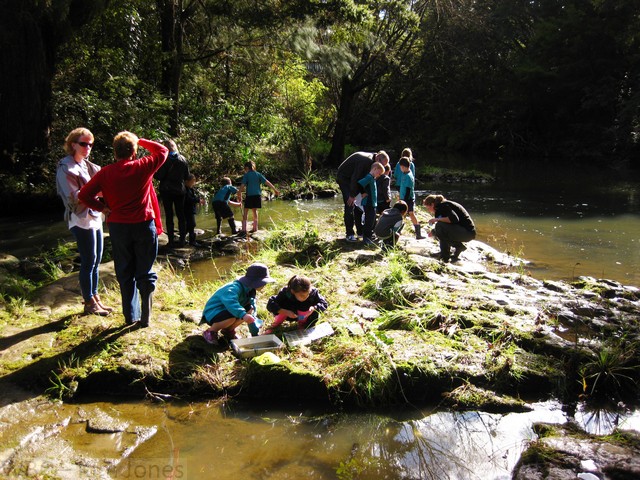 of local freshwater issues, supporting local government initiatives and local community groups in Auckland.
of local freshwater issues, supporting local government initiatives and local community groups in Auckland.  Gisborne's goal is to deliver schools and their communities practical, holistic and inspiring information and education about local freshwater environments and to promote positive changes in attitudes and behaviour towards them. Their ultimate goal is to encourage and inspire schools and community groups to become kaitiakitanga/guardians of our local streams to restore, maintain or improve these sites.
Gisborne's goal is to deliver schools and their communities practical, holistic and inspiring information and education about local freshwater environments and to promote positive changes in attitudes and behaviour towards them. Their ultimate goal is to encourage and inspire schools and community groups to become kaitiakitanga/guardians of our local streams to restore, maintain or improve these sites.
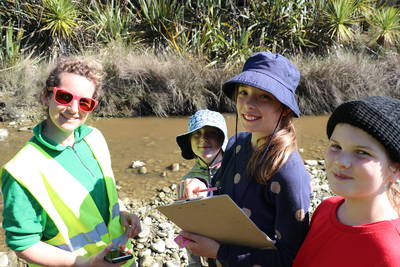 importance of connecting our young people to their local environment through education and experience. We know that children who are more connected to their environment have a greater likelihood of looking after it in the future. Our goal is that every school in Te Tau Ihu (Nelson/Tasman) has the opportunity to participate in the Experiencing Marine Reserves and/or Whitebait Connection programmes.
importance of connecting our young people to their local environment through education and experience. We know that children who are more connected to their environment have a greater likelihood of looking after it in the future. Our goal is that every school in Te Tau Ihu (Nelson/Tasman) has the opportunity to participate in the Experiencing Marine Reserves and/or Whitebait Connection programmes. 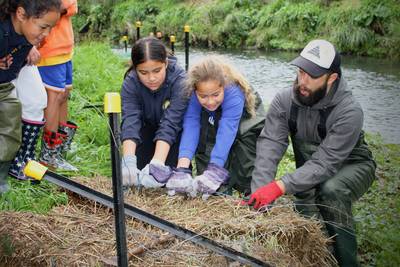 delivering the programme to local schools under the umbrella of the
delivering the programme to local schools under the umbrella of the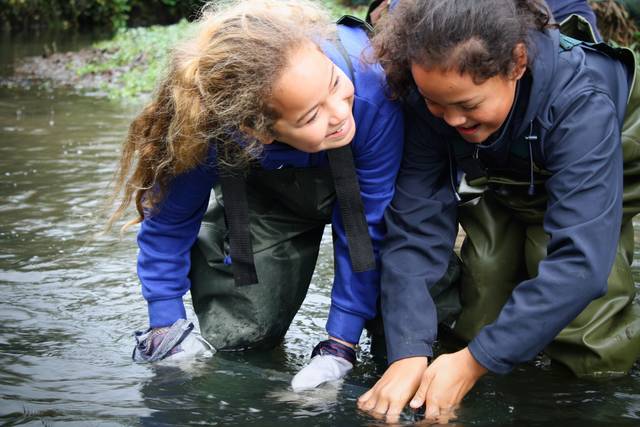
 ecology and engagement company, EOS Ecology, who also have a specialist graphic designer, Bronwyn, who designed the newly created National Inanga Spawning Programme (NISP) resources and produces wonderfully engaging documents for the team.
ecology and engagement company, EOS Ecology, who also have a specialist graphic designer, Bronwyn, who designed the newly created National Inanga Spawning Programme (NISP) resources and produces wonderfully engaging documents for the team.

